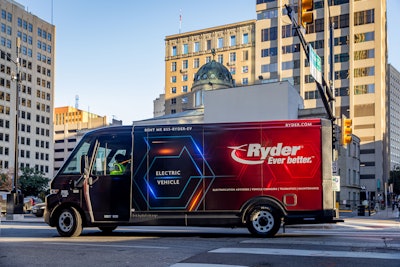
Given the significant infrastructure hurdles in the race to battery electric trucks, a reduced total cost of ownership – largely helped by the absence of fuel expenses and maintenance savings from not having an engine or driveline – has been the biggest pro-battery electric truck argument to-date. However, recent analysis by Ryder found that may not be the case, and those overall savings may not exist – at least not universally for all motor carriers.
Based on representative network loads and routes from Ryder’s dedicated fleet operations in today’s market and other factors, the data published Wednesday shows the annual total cost to transport (TCT) by EV versus diesel is estimated to increase across the board, ranging from up to 5% for light-duty transit to more than double for a heavy-duty tractor (depending on the geographic area). And, for a mixed fleet of 25 light-, medium- and heavy- duty vehicles, the analysis shows an increased TCT of up to 67% for an all-electric fleet.
[Related: Trucking's trillion dollar fantasy]
Ryder last year introduced a new turnkey solution, RyderElectric+, with EV advisory, vehicle lease, charging, telematics, and maintenance services, and is among the early movers in the electric trucking space, yet Chairman and CEO Robert Sanchez said that while Ryder is actively deploying EVs and charging infrastructure where it makes sense for customers today, "we are not seeing significant adoption of this technology."
"For many of our customers, the business case for converting to EV technology just isn’t there yet, given the limitations of the technology and lack of sufficient charging infrastructure," he said. "With regulations continuing to evolve, we wanted to better understand the potential impacts to businesses and consumers if companies were required to transition to EV in today’s market.”
There are roughly 16.4 million Class 3-8 commercial vehicles in operation in the U.S., and only about 18,000 are EVs, according to CALSTART. Ryder’s analysis estimates cost increases to convert heavy-duty and mixed fleets to EVs could cumulatively add approximately 0.5% to 1% to overall inflation as those costs get passed along to consumers.
Zero emission ground zero
 Ryder
Ryder
California is Ground Zero for zero emission trucking but its regulations and mandates, according to Ryder's report, will drive heavy-duty transport costs to more than double in the state when compared to diesel. For a heavy-duty Class 8 EV tractor, Ryder estimates the annual TCT increases by approximately 94%, approximately $315,000. The equipment cost is the largest contributor, representing an increase of approximately 500%, followed by general and administrative costs that increase approximately 87%, and labor and other personnel costs that increase 76% and 74%, respectively.
Fuel versus energy savings are approximately 52%. This assumes delivery times equivalent to a diesel vehicle and factors payload and range limitations as well as EV charging time – all of which requires nearly two heavy-duty EV tractors (1.87) and more than two drivers (2.07) to equal the output of one heavy-duty diesel tractor (which requires 1.2 drivers on average, according to Ryder analysis).
Lighter-duty use cases in California are less financially intense, according to the report. A light-duty EV transit van (Class 4) shows an estimated annual increase in TCT of approximately 3% or nearly $5,000. While vehicle cost increases 71% and labor increases 19%, partially due to more time required for EV charging, fuel versus energy costs decrease 71% and maintenance cost decreases 22%. For a medium-duty EV straight truck (Class 6), the annual TCT increases to approximately 22% or nearly $48,000. The vehicle cost increases 216%, which is only partially offset by a 57% savings in fuel versus energy and 22% savings on maintenance.
“There are specific applications where EV adoption makes sense today, but the use cases are still limited," said Karen Jones, Ryder executive vice president and head of new product development. "Yet we’re facing regulations aimed at accelerating broader EV adoption when the technology and infrastructure are still developing. Until the gap in TCT for heavier duty vehicles is narrowed or closed, we cannot expect many companies to make the transition; and, if required to convert in today’s market, we face more supply chain disruptions, transportation cost increases, and additional inflationary pressure.”
States with lower fuel and energy costs generally do not provide the same level of savings when transitioning from fuel to electricity as those found in California, resulting in even higher cost disadvantages than those found in California, the report found. For example, Ryder found TCT increases by nearly 114%, or more than $330,000, in Georgia thanks to lower fuel versus energy savings and higher labor and personnel costs.
To convert a mixed fleet of vehicles in California to EV, the TCT would increase nearly 56%, or more than $3.4 million, Ryder found. To convert the same fleet in Georgia, the TCT would increase approximately 67%, or just more than $3.6 million.




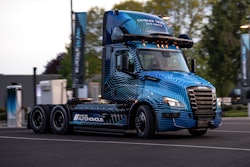

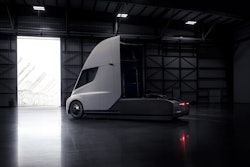
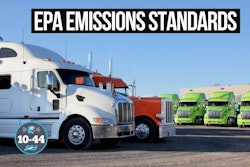


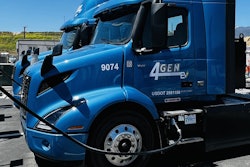

![Volvo Vnl Sleeper Review[20]](https://img.ccjdigital.com/mindful/rr/workspaces/default/uploads/2025/11/volvo-vnl-sleeper-review20.lrVppY9UDR.jpg?auto=format%2Ccompress&fit=crop&h=167&q=70&w=250)
